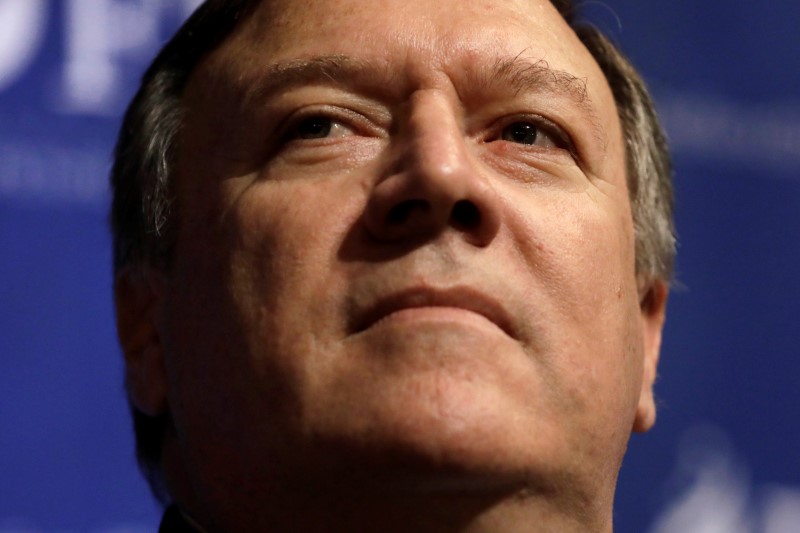By Warren Strobel
WASHINGTON (Reuters) - CIA Director Mike Pompeo on Thursday said, apparently inaccurately, that U.S. intelligence agencies had concluded that Russian interference did not affect the outcome of the 2016 U.S. presidential election.
In fact, U.S. intelligence agencies in January said that they had made no assessment one way or the other on the impact of Moscow's hacking and propaganda campaign but its report stated that Russia's aim was to try and help then-Republican candidate Donald Trump's election chances.
Pompeo, a former Republican congressman and Trump ally, was asked at an event in Washington if he could say with absolute certainty that the election results were not skewed as a result of Russian interference. Pompeo replied: "Yes. Intelligence community's assessment is that the Russian meddling that took place did not affect the outcome of the election."
The top Democrat on the U.S. House of Representatives Intelligence Committee, Adam Schiff, criticized Pompeo for his remark.
"I was deeply disappointed to learn that CIA Director Pompeo today asserted that the intelligence community had found that Russian interference in our election did not affect the outcome. In fact, the Intelligence community made no such finding, nor could it," Schiff said in a statement that noted the January assessment.
"This is not the first time the Director has made statements minimizing the significance of what the Russians did, but it needs to be the last," Schiff said.
The agency later issued a statement that appeared to walk back Pompeo's remark.
"The intelligence assessment with regard to Russian election meddling has not changed, and the Director did not intend to suggest that it had," said Dean Boyd, the director of the CIA's office of public affairs.
Russia has repeatedly denied U.S. intelligence agencies' conclusions that Moscow meddled in the election and Trump has denied any collusion between his campaign and Russian officials.
Committees in both the U.S. Senate and the House are investigating as is a special counsel, former FBI director Robert Mueller. The probes have cast a shadow over Trump's presidency, especially after Federal Bureau of Investigation Director James Comey was fired by Trump in May.

In an interview with NBC after Comey's removal, Trump admitted that he was thinking about "this Russia thing" when he decided to fire Comey.